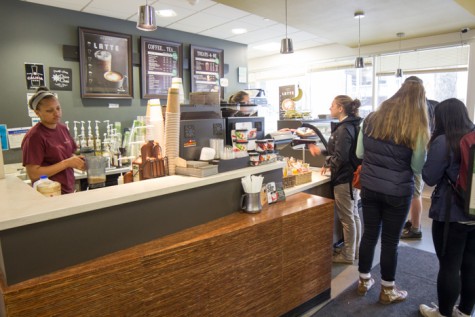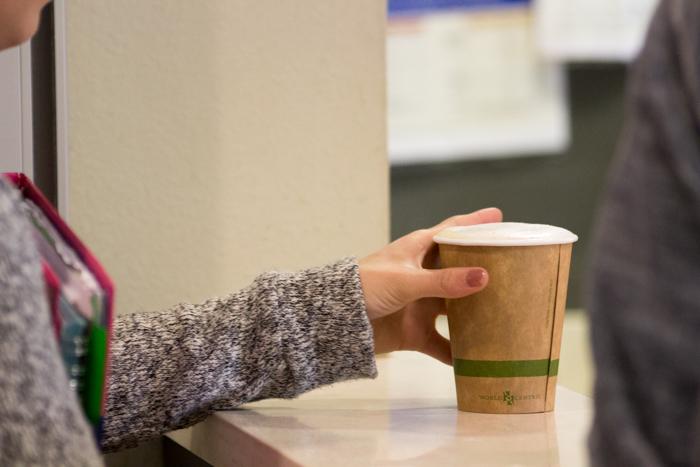College life is full of peaks and valleys. This is especially true if caffeine is what fuels you. Students may become stuck in a cycle, stopping their caffeine intake when their tolerance becomes too high, and starting up again to feel that indispensable burst of energy. While there are a wide range of reasons to take a break: health, financial, a change of pace, some simply feel they need to take a “tolerance break.”
“I did five weeks of no caffeine because by the end of last semester I would be drinking like five to six cups of coffee with like three shots of espresso…and then fall asleep at 10 p.m.,” said Alayna Hong, sophomore business management major. “But that first coffee afterwards… that was the best day of my life.”
Moderation can help stave off the side effects of too much caffeine. While it is a widely accepted fact that caffeine is beneficial for mental performance, alertness, attention and concentration, these positive effects can be negated by those who over-do it.
“The recommendation is three, six ounce cups of coffee for most people. More than that would tend to build up anxiety. Again, it depends a lot on the person,” said Maria Giovanni, professor of nutrition and food science.
Taking caffeine breaks may be a good way to achieve balance, or energy equilibrium. Timing these breaks is also important. Those seeking to kick the habit should consider giving themselves a cool down period, as opposed to going cold turkey.
“If a person finds themselves using a lot, maybe during dead week or finals, they should probably taper off. Cut down half each day over three days, and then go through what they call a washout period where you aren’t using any beverages, that includes soft drinks,” Giovanni said.
For some, it can be particularly challenging to wind down like this. The dependency can be so demanding that caffeine is needed at regular intervals for a person to feel comfortable.
“If I don’t have coffee before 12 o’clock, I start to get kind of a headache, it doesn’t really go away. By the time it’s 5 o’clock, it’s migraine status,” said Mathew Emerson Navarro, alumnus of social science education.
With the promise of a headache always lurking right around the corner, is this a healthy habit? Do the benefits outweigh the drawbacks?
“Part of it depends on the form in which it is consumed,” Giovanni said. “If it’s coffee or tea there’s a stimulant effect that most people experience—not everybody. Everybody metabolizes things differently. For some people, it keeps them awake, makes them anxious or stressed. Other people not so much. It also provides a social benefit which I think is important too.”

Indeed, students have different experiences with caffeine, but few seem to be overly concerned with the social benefits. The main motive of caffeine consumption appears to be for its mood enhancing benefits.
“I’m not as addicted to coffee. I don’t really feel a crash, it’s just that the day is easier with coffee,” said Aleana Adcock, sophomore biochemistry major.
It may be that we are culturally wired to consume caffeine. Even after college many people continue to use caffeine as a necessary component of the work life. While it may be necessary to weather the pain of withdrawal to remind ourselves that it is not the caffeine that is in control, students and professionals alike will continue to start every morning with the vital energy boost that is caffeine.
“Now that I’m working and not going to school, it’s more about the work culture,” Navarro said. “Now it’s kind of an addiction thing. I tried to kick the habit. I made it three days, I got through the headaches and then I used the same idea: I can clearly quit anytime I want, I just don’t want to.”
Perhaps that problem with this habit is not simply that we consume caffeine, but how much caffeine we consume.
“Part of it too, is in the United States we’re so used to supersizing everything, ‘give me a grande,’ or whatever. In South America their serving sizes are relatively small,” Giovanni said.
Students studying abroad from South America also notice this trend. There is a cultural difference between how Americans approach caffeine and how other cultures approach it.
“In Brazil we drink small cups, but here people drink a lot. I always see people with huge cups,” said Alana Ribeiro Ramos Sasse, computer science major and study abroad student.
Also particular to the U.S. is the energy drink culture.
“I didn’t drink Red Bull in Brazil. I didn’t try it until I came here. My heart was racing a lot,” said Isabella Ramos de Silva, civil engineering and study abroad student.
Not all Chico State students indulge in the energy drink culture, however.
“They taste like piss,” Hong said. “…with vodka. That’s about it. That’s probably the only time that I rationalize that a Red Bull is OK.”
Eric Couderc McGuire can be reached at orionnewseditor@gmail.com or @ericcoudercmcg on Twitter






Robert // Feb 22, 2016 at 2:24 pm
How does Alanya Hong know what piss tastes like? Please be specific.